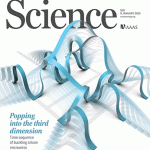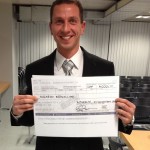 A group of European researchers is retracting their 2012 paper in Thorax on the link between cystic fibrosis and the common cold after discovering that the first author, a promising young microbiologist in Switzerland, had made up her data.
A group of European researchers is retracting their 2012 paper in Thorax on the link between cystic fibrosis and the common cold after discovering that the first author, a promising young microbiologist in Switzerland, had made up her data.
The article, titled “Impaired type I and type III interferon induction and rhinovirus control in human cystic fibrosis airway epithelial cells,” purported to describe:
a novel mechanism to explain the increased susceptibility of patients with CF to rhinovirus infections. A profound impairment of the antiviral early innate response in CF airway epithelial cells was identified, suggesting a potential use of IFNs in the treatment of rhinovirus-induced CF exacerbations.
The lead author was Marjolaine Vareille, who at the time was at the University of Bern. Vareille won a L’Oréal France grant in 2007 from the Fondation L’Oréal – Unesco-French Academy of Sciences. The paper has been cited eight times, according to Thomson Scientific’s Web of Knowledge.
But according to the retraction notice: Continue reading Thorax retracts cystic fibrosis paper with bogus data
 Less than three months after publishing a paper in Science which they claim to have been able to detect the spin of a single proton, the authors have retracted it for “a potentially serious issue with the main conclusion.”
Less than three months after publishing a paper in Science which they claim to have been able to detect the spin of a single proton, the authors have retracted it for “a potentially serious issue with the main conclusion.”




